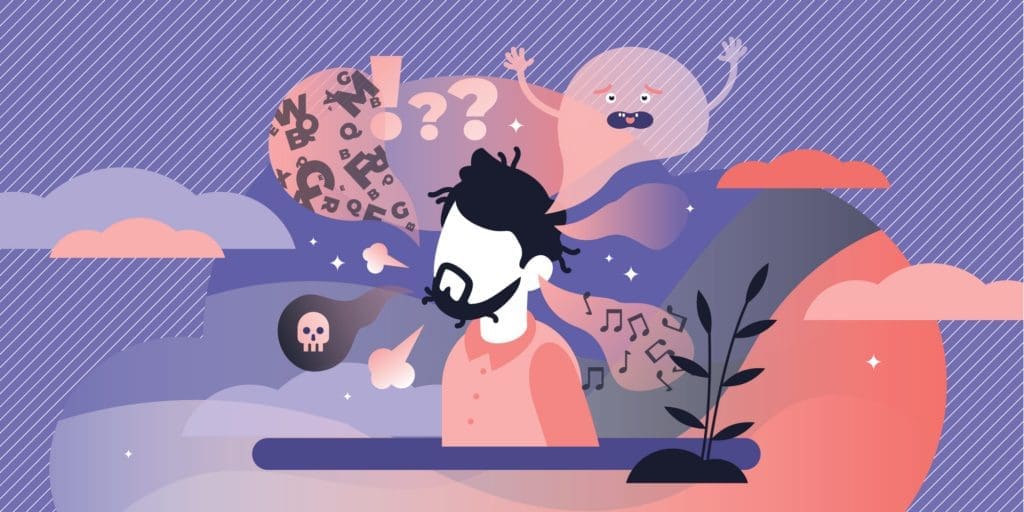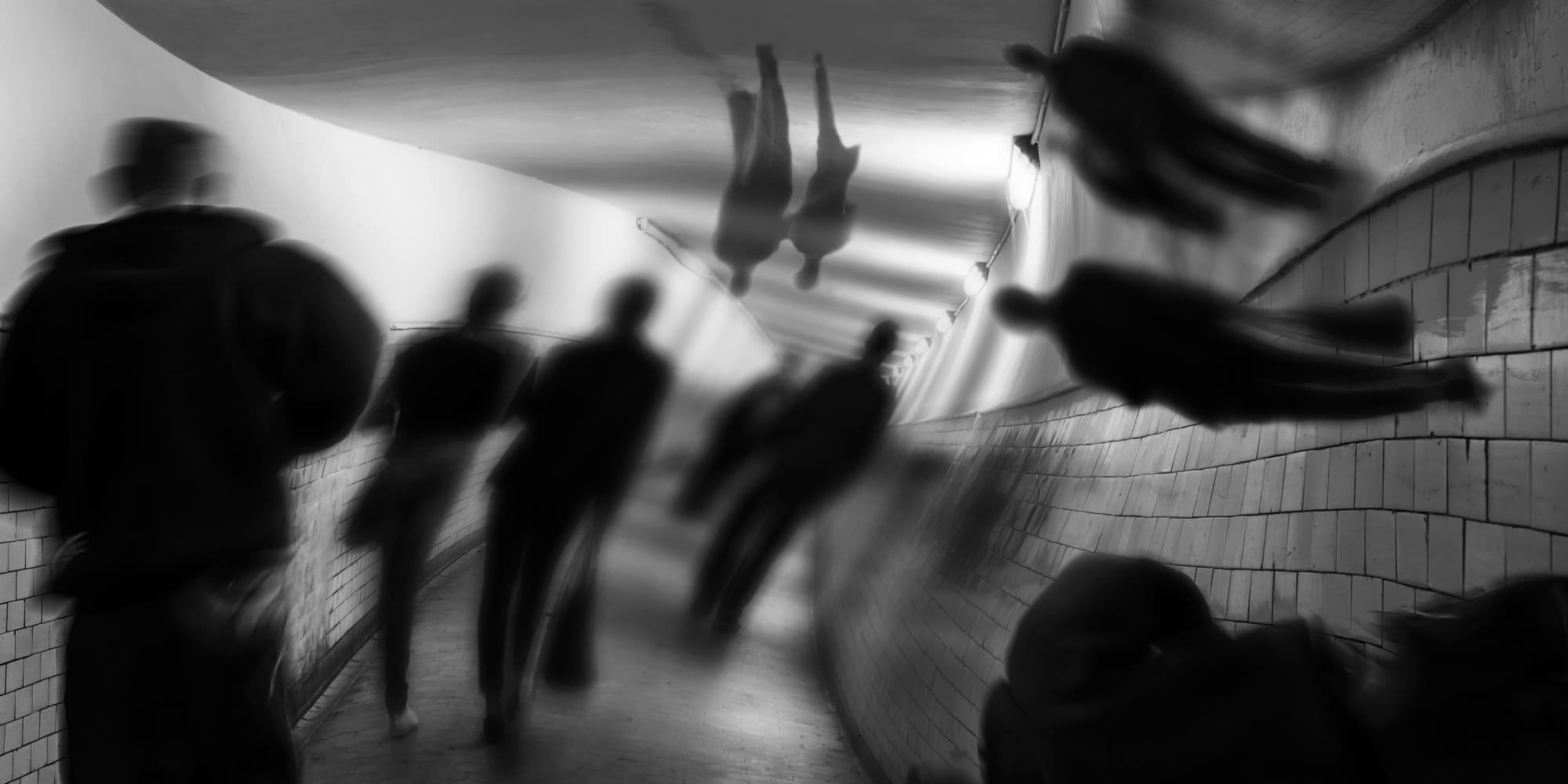While you may be familiar with the term schizophrenia, you may not be aware of what it actually is. Schizophrenia has been widely popularized by films and television as a mental condition that causes people to become “crazy” or “out of control.” But that is simply not the case. The real schizophrenia facts are often lost in the popularization of the condition, which is why it’s important to understand the reality.
While schizophrenia is a serious mental health condition, the majority of people with schizophrenia are no more dangerous than people without schizophrenia. Schizophrenia is also a very treatable mental illness. In fact, with the right therapy and support systems, most people with schizophrenia can live independently, manage their symptoms, and enjoy a healthy life.
Given the amount of confusion surrounding schizophrenia, it’s important to understand what it is. Below is everything you need to know about schizophrenia, along with some interesting facts and statistics.
Contents
What Is Schizophrenia?

Schizophrenia is a chronic and severe brain disorder that alters a person’s perception of reality. This mental disorder affects a person’s social interactions, thought processes, and behaviors. It is also extremely rare, affecting less than one percent of the United States population. Worldwide, the prevalence of schizophrenia is about the same, with roughly 20 million people diagnosed every year.
Schizophrenia can affect anyone at any stage in life but is most commonly diagnosed between the ages of 18 and 30. People with schizophrenia often describe symptoms such as hearing loud voices in their heads that can’t be silenced, or frequent feelings of extreme paranoia. Other common symptoms of schizophrenia can include hallucinations, delusions, and cognitive issues such as difficulty completing tasks.
However, having schizophrenia does not mean that a person is more violent or wants to harm people. In fact, individuals with schizophrenia are 14 times more likely to suffer violence than to inflict it on someone else. Understanding the real schizophrenia facts is crucial to combatting mental health stigma and helping people get the care they need.
Real Schizophrenia Facts: Causes
Currently, there is no known cause of schizophrenia. Some scientists believe that schizophrenia may be the result of problems with brain chemistry and brain structure. These structural changes are thought to occur during fetal development, although they can occur at any time later in life.
Other prevailing theories behind the cause of schizophrenia are genetics and family history. Scientists believe that schizophrenia may be caused by a complex combination of genetics and environmental influences. Some research has found that your likelihood of developing schizophrenia increases by up to six times if you have a close relative with the disorder.
Researchers are also currently investigating other potential causes such as viral infections, brain damage from complications during birth, and substance use. So on this matter, the exact schizophrenia facts remain unclear.
Schizophrenia Facts You Might Not Know
Since schizophrenia is so rare, there is still much that we don’t know about it. Below are some interesting schizophrenia facts and statistics you should know.
There Is More Than One Type of Schizophrenia
While many are quick to use the label “schizophrenic,” not all cases of schizophrenia are the same. Among important schizophrenia facts, people often don’t realize that there are five different types of schizophrenia, each with its own unique set of symptoms.
Paranoid Schizophrenia
Paranoid schizophrenia is the most common type of schizophrenia worldwide. While the American Psychiatric Association (APA) has determined that paranoia is a symptom of schizophrenia, meaning paranoid schizophrenia isn’t a separate condition, the term is still used today.
Symptoms of paranoid schizophrenia can include:
- Hallucinations
- Delusions
- Trouble concentrating
- Disorganized speech
Disorganized Schizophrenia
Disorganized schizophrenia is a type of schizophrenia in which a person doesn’t experience hallucinations or delusions. People with disorganized schizophrenia often experience chaotic behavior or speech.
Common symptoms of disorganized schizophrenia include:
- Speech disturbances
- Disorganized thinking
- Trouble performing daily tasks or activities
- Not displaying or expressing emotions in the same way other people might (flat affect)
- Inappropriate behavior or emotions
Catatonic Schizophrenia
Catatonic schizophrenia is a very rare subtype of schizophrenia. This is thanks, in part, to improved treatment methods. People with this type of schizophrenia will experience periods in which they flip between decreased and excessive motor activity.
Symptoms of catatonic schizophrenia include:
- Mutism (not speaking)
- Mimicking behavior
- Stupor (no interaction with the environment)
- Unusual posture
Undifferentiated Schizophrenia
Undifferentiated schizophrenia is a term used to describe someone who displays symptoms of more than one type of schizophrenia. For example, someone with disorganized schizophrenia may experience periods of catatonic-like behavior and thus be diagnosed with undifferentiated schizophrenia.
Residual Schizophrenia
Residual schizophrenia is a type of schizophrenia in which a person who has previously had a schizophrenia diagnosis is no longer displaying symptoms. Many people with schizophrenia will experience periods in which their symptoms come and go, which can make a diagnosis of residual schizophrenia rare.
Symptoms of residual schizophrenia include:
- Flat affect
- Slowed speech
- Poor hygiene
- Difficulty with psychomotor skills
Schizophrenia Affects People Differently
Clearly, not all cases of schizophrenia are created equal. This is especially apparent when looking at the demographics of schizophrenia.
For example, the overall prevalence of schizophrenia in the U.S is about 1.5 million people every year. Given this, we would expect to see a similar representation of schizophrenia across all demographics such as race and sex. However, research has found that black Americans are three to four times more likely to develop schizophrenia than white Americans.
Across all cases of schizophrenia in the United States, 21.1% are black, 19.9% are Latino, 13.1% are white, and 5.4% are Asian American.
Researchers are still unclear why some racial and ethnic groups are more affected than others. This could relate more to how often people are diagnosed with schizophrenia, rather than how often it actually occurs in various racial groups.
Many People With Schizophrenia Have Other Mental Illnesses
Given the popularization of schizophrenia by television and movies, people are often quick to assume that everyone who is a schizophrenic suffers from the same symptoms. This is simply not the case. In fact, people with schizophrenia often suffer from other mental illnesses at a much higher rate than the general population.
The following represents the percentage of people with schizophrenia who also suffer from a mental illness:
- Depressive disorders: 30%-52%
- Post-traumatic stress disorder (PTSD): 29%
- Obsessive-compulsive disorder (OCD): 23%
- Panic disorder: 15%
With such a high risk for other serious mental illnesses like depression, it’s important to understand just how treatable schizophrenia can be. Part of the misconception around this mental illness is that there is nothing to be done about it, but schizophrenia is treatable. And when people understand real schizophrenia facts, it becomes easier for individuals in need to get help.
Schizophrenia Is Very Treatable
Despite its infamy for being a “dangerous” mental illness, schizophrenia can be a very treatable condition. The overall success rate for schizophrenia treatment is actually higher than that of heart disease, around 60% compared to 41%-52%.
However, the stigma surrounding schizophrenia can make it extremely difficult for many to get proper treatment. In fact, the World Health Organization (WHO) reports that nearly 70% of people with schizophrenia are not receiving proper care. They also state that nearly 90% of those not receiving care fall into the lowest income communities.
Understanding the real schizophrenia facts can help break the stigmas surrounding this mental disorder, and get more people to understand how treatable it really is.
Schizophrenia Treatment Near Port St. Lucie, Florida


Unfortunately, there is no known cure for schizophrenia. However, schizophrenia is a very treatable mental disorder. In fact, with the right combination of medications and therapy, most people with schizophrenia can live a normal, healthy lifestyle while managing their symptoms.
At Port St. Lucie Hospital, located in sunny Florida, our world-class staff is well-versed in treating mental disorders like schizophrenia. The best treatment method for schizophrenia often involves a combination of both medication and psychotherapy. To that end, at Port St. Lucie Hospital, we offer several programs to assist you during your path to recovery. These programs include our adult mental health program, as well as our dual diagnosis program.
Our adult mental health program provides full inpatient treatment, with the highest quality of assessment, diagnosis, stabilization, and evidence-based treatments for schizophrenia and other psychiatric issues. Our patients receive medically assisted treatment from our staff, who always ensure they are delivering the utmost level of kindness and empathy at all levels of care. By knowing the realities of schizophrenia, we use these schizophrenia facts to empower you and help restore your mental wellbeing.
Mental illnesses, especially severe conditions like schizophrenia, are often accompanied by substance abuse. This is referred to as a co-occurring disorders, which require specialized treatment. The dual diagnosis program at Port St. Lucie Hospital is specially designed to serve patients with mental health issues and drug or alcohol addiction. During this program, we give our patients the skills and resources to cope with mental illness without relying on drugs or alcohol.
Whether you’re looking for inpatient care, dual diagnosis, or crisis care for those in immediate danger, Port St. Lucie Hospital is here to help. If you have any questions about our programs or want to know if you should get help, call us today at (772) 238-7734, or fill out our online contact form.



























